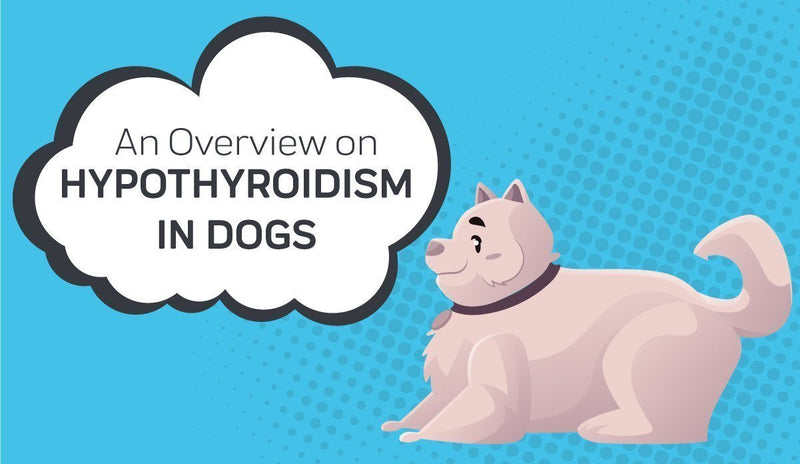- Can Cats Get Colds: What is a Cat Cold?
- What Causes a Cat to catch a Cold?
- How Long Does a Cat's Cold Last?
- Cat Cold Symptoms
- Diagnosing an Upper Respiratory Infection in Cats
- Feline Cold Treatment
- Preventing an Upper Respiratory Infection in Cats
- Chronic Cat Respiratory Infections
- How CBD Oil Might Help When Your Cat Has a Cold
- Using CBD Oil
- Dosing CBD Oil
- Risks Associated with CBD Oil
- Purchasing CBD Oil
- Innovations from Innovet
Maybe your kitty is sneezing or coughing and just acts like they don't feel good. This is when many cat owners start asking, "can cats get a cold?" Yes, they can, though they're not exactly like human colds and humans and cats can't share colds. Read on to learn everything you need to know about a cat cold.
Can Cats Get Colds: What is a Cat Cold?
Technically, cat colds are usually feline upper respiratory infections, but they are called colds and they usually resolve on their own like a human cold. Sometimes, they can become serious.
What Causes a Cat to catch a Cold?

Cats get viral or bacterial infections in their upper respiratory system, almost always coming from the calicivirus or the herpesvirus, though there are many others that can cause it.
They contract the disease from other cats and are therefore more likely to catch it when around large numbers of cats such as in a pet store, shelter, breeding facility, or daycare.
The disease is highly contagious, spreading through the saliva and eye and nasal discharge, so it is important to keep healthy cats away from sick cats and to sanitize the area where sick cats have been.
A cat with a strong immune system will usually need to come into direct contact with the sick cat to contract the disease, but weaker immunity makes it easier for a cat to contract it from just encountering contaminated fluids on objects. You should wash the bedding, bowls, toys, and washable surfaces the sick cat has used with soap.
Humans cannot get colds from cats or vice versa, though you could get an eye infection if a cat sneezes or coughs in your face, and the H1N1 virus has been transmitted between humans and cats.
It is always a good practice to wash your hands when handling a sick cat and to wash its belongings and living space to protect yourself and the rest of your family from the few potential illnesses that can spread between humans and cats and to keep from spreading the disease from cat to cat.
Many people ask, "how do indoor cats catch colds," implying that their cat has had no contact with another cat and yet they still got a cold. It is possible for cats to encounter a bacteria or virus that causes an upper respiratory infection even if they did not have direct contact with a cat. The fluids just have to be present, so it could come in on the air, your shoes, or the dog. Again, the stronger your cat's immunity, the less likely it is that they could contract the disease without direct contact.
How Long Does a Cat's Cold Last?
Upper Respiratory infections in Cats are similar in this respect to human colds. They typically last around 7 to 10 days but can persist as long as 21 days.
The incubation period, the time it takes before symptoms develop, is 2 to 10 days, and it is during this time that the cat is the most contagious. This means that if you suspect your cat has been exposed to a cat with an upper respiratory infection, you should keep them away from other cats even before symptoms appear.
Cat Cold Symptoms
When your cat catches a cold, it will usually not be a big deal.
Mild symptoms of a cat cold may be:
- sneezing
- coughing
- watering eyes
- runny nose
All discharge should be clear.
More severe symptoms of a respiratory infection in Cats include:

- excessive sneezing
- excessive coughing
- Runny nose has thick discharge that is white, yellow, or green
- visible third eyelid
- lack of appetite
- dehydration
- lethargy
- excessive swallowing because of nasal drainage
- fever
- mouth breathing
- trouble breathing
- ulcers of the mouth, nose, or eye that may be painful
More serious symptoms may not mean that your cat is very ill, yet, but their body is struggling to deal with the infection and you should get them veterinary care to ensure they don't become sicker because of a lack of water or nutrition or that they don't develop pneumonia.
Diagnosing an Upper Respiratory Infection in Cats
If the feline cold lasts longer than 7 to 10 days or progresses to more severe symptoms, you should take them to the vet promptly.
The vet can usually diagnose that your cat has a cold because of their symptoms and visible signs. They may want to perform diagnostic tests to determine the cause and type of infection and to rule out severe cases like feline herpesvirus, immunodeficiency or leukemia.
Feline Cold Treatment
When your cat has an upper respiratory infection, you might run a humidifier, boil water, or get them to spend time in a steamy bathroom to keep their nasal passages more clear.
Make sure they have constant access to clean water. You might increase their interest in it by cooling it with ice, if it is hot, get them one of those cat fountains, or adding something to it that is healthy for them to drink that they'll like. You might also feed them more canned food or add water to it.
You can tell if your cat is becoming dehydrated by doing the pinch test, pinching the skin on the cat's neck just above their shoulders. It should spring back immediately. If not, they are becoming dehydrated. You can also check their gums to see if they are pale or red, rather than pink. Their gums may also feel sticky if you touch them when they are dehydrated.
With loss of appetite, try giving them their favorite foods, warming their cat food, or feeding them meat-based baby foods. If that doesn't work, take them to the vet.
You can wipe discharge from their face with a soft, damp cloth with warm water.
If a cat common cold doesn't go away on its own, the vet may prescribe antibiotics for bacterial infections, decongestants, or appetite stimulants to get them to eat on their own. They may also prescribe treatments to boost the cat's immune system.
If they are badly dehydrated or not eating, they may be kept at the vet's office for fluid therapy and feeding support before being safe to go back home.
The herpesvirus may have to be treated with special medications.
You can NOT get feline cold medicine over the counter. There is no such thing for cats, and human cold medications are not suitable for them.
Preventing an Upper Respiratory Infection in Cats
There are vaccinations for the two most common causes of feline upper respiratory infections, so you could speak to your vet about those.
Prevent contact between sick and healthy cats. That may mean keeping your healthy ones away from ones who may be ill that belong to others or no one or isolating your sick feline.
If your cat is sick, wash their belongings and the areas they stay in.
If you manage to know or suspect that your cat came into contact with a sick one, start isolating them before the symptoms appear.
Take new cats to the vet for a checkup before bringing them home to mingle with cats you already have. You might also want to limit their contact with other cats for a week or two in case it was just too soon to tell.
Chronic Cat Respiratory Infections
Once a cat has had an FVR upper respiratory infection, the illness may recur later in life when they are sick or stressed.
Other cats may suffer from chronic colds due to other health issues and a vet may do x-rays and cell cultures to discover the route of the problem.
How CBD Oil Might Help When Your Cat Has a Cold
CBD oil for cats shows promise as a safe alternative to appetite stimulants should your cat be unable to take prescribed appetite stimulants. Or the cat may only be suffering from the earliest stages of low appetite and you already have some CBD oil on hand, so you could give them a little and see if it can quickly get them eating normally again.
CBD oil is also frequently used to give a subtle energy boost, just the thing for gently helping your feline friend act more like their normal self.
Medications that your vet prescribes for a sick cat may cause side effects that make them feel terrible and may be serious enough to make it so the cat can't keep taking the medication.
CBD oil may manage the following side effects from common medications:
- nausea
- diarrhea
- vomiting
This means CBD oil could allow your pet to continue taking a life-saving medication that otherwise would be intolerable to their system.
CBD oil, or cannabidiol, comes from hemp and marijuana. Hemp is a particularly great source of cannabidiol because it contains much more of it than marijuana and virtually none of the THC that gives marijuana its characteristic "high".
Scientists have discovered that human and cat bodies have an endocannabinoid system, a group of receptors involved with many vital life functions that creates and responds to its own cannabinoids to achieve homeostasis and the normal functioning of the body. External cannabinoids like cannabidiol interact in the body much like our own cannabinoids, helping to regulate deficiencies and provide helpful boosts.
Using CBD Oil
CBD oil can be purchased in several forms to meet the needs and tastes of your cat:
- oil tinctures
- extract concentrates
- capsules
- treats
Extract concentrates, as the name suggests, are a concentrated form of cannabidiol that come out in little beads for dosing. This is the most cost-effective and purest (only one ingredient) form of CBD oil. It has no flavoring, so if your cat doesn't like the distinctive hemp taste, the concentrate will have to be masked in a strong-tasting food or beverage. We also have a Catnip CBD spray that may do the trick!
Oil tinctures are cannabidiol mixed with a carrier oil, and often a flavoring, to make it easier and more enjoyable to take. It comes with a dropper or sprayer so it can be dosed by measuring the number of drops or sprays.
Capsules eliminate any taste issue and are great options for cats who don't mind taking pills.
Treats make taking CBD oil the most fun it can be. It's a treat after all! They even come in crunchy and chewy forms to be the most like the treats your cat already loves.
Dosing CBD Oil
Capsules and treats tell you on the package what dose each capsule or treat contains and how many you should give your cat to reach the intended dose. These are simpler to dose than concentrates and tinctures, but they also don't allow you as much flexibility.
Recommended doses are calculated for the average cat. This means a very small, young, old, large, or sick cat will need different dosing. You should probably contact your vet for personalized advice.
Concentrates and tinctures allow you to achieve any dose, small or large, your cat needs. They're also great to have on hand for multiple pet households so you can vary doses for different pets.
Risks Associated with CBD Oil
CBD oil is pretty risk free. That's why it's growing in popularity as a primary and secondary option to manage many ailments. What concerns there are we will share with you to keep your cat 100% safe.
While there is no known instance of an overdose of CBD oil, excessive dosing of CBD oil can cause loss of appetite, diarrhea, or sedation.
CBD oil alters the way the liver absorbs medications so that doses don't work as expected. This means your vet will need to know about any CBD oil use so they can calculate doses and treatments accordingly.
CBD oil is not FDA approved at this time. While cannabidiol is exciting scientists with all the ailments it shows promise at managing, there haven't been enough tests yet to make FDA approval. So, right now it's still kind of experimental. Don't use CBD oil to treat a life-threatening illness unless traditional treatments are ineffective or unsuitable for your cat and you have vet approval. It may provide amazing results for your cat as it does with many, but it isn't guaranteed and you shouldn't assume that it will with something threatening.
More vets are discovering all the time that CBD oil can help in ways that traditional medications cannot, but that doesn't mean your vet is one of them. If you are interested in giving your cat CBD oil and your vet isn't onboard, call around. Some of your other local vets may be, and you may be able to find a holistic vet in or near your area.
Purchasing CBD Oil
Read the following information before purchasing CBD oil to ensure you are buying the safest products for your cat.
CBD Isolate versus Full-spectrum
CBD isolate, as the name implies, is just cannabidiol while full-spectrum CBD is cannabidiol along with other cannabinoids(not THC), terpenes, and nutrients found in the hemp plant. Full-spectrum is actually the most popular choice, but other people swear that CBD isolate is actually more effective for them. So, the choice is up to you. If you try one and it doesn't work, you should try the other before giving up on CBD oil altogether. Do bear in mind that cats with nutritional issues may benefit from the additional calories and nutrients in full-spectrum CBD.
Third-party Testing
Disreputable CBD oil manufacturers sell products with poor-quality cannabidiol, less cannabidiol than promised, or no cannabidiol at all. For this reason, reputable CBD oil manufacturers prove to customers that their products are as promised by having their products tested by an outside lab and then publishing the results on their website. You can view an example of ours, demonstrating how we show you the test results from each batch of PurCBD+ 125mg.
Origin
Reputable CBD oil manufacturers will tell you were they acquired their cannabidiol. Some grow their hemp and extract the cannabidiol from it themselves while others get the hemp or the cannabidiol from someone else. Either is fine as long as you ensure the hemp was grown in a country with safe growing regulations.
Extraction
Check the website for mention of the CO2 extraction method as it is the safest and purest option.
What's Inside
You should read the ingredients list on any CBD oil product you intend to buy. First, look at the number of ingredients to try to see if they appear to be putting a lot of unnecessary or unsafe things in your CBD oil. Then, research anything you don't recognize to ensure it isn't unsafe or something your cat is allergic to.
You might want to make your first CBD oil purchase at Innovet as we meet or exceed each criteria mentioned here.
Innovations from Innovet
We love to find creative and eco-friendly solutions to pet problems. If you're researching "my cat has a cold," you've probably got a sneezy, coughing, or sluggish cat on your hands. Our CBD oil can make them more willing to eat and more active, and it may help them deal with side effects from medications they need because of their cat cold.
You can also write to us about any ailments or pet problems you have that are not able to be addressed with current traditional treatments or natural alternatives. We specialize in finding innovative solutions for hard to address pet issues.
Sources:
Home Remedies for Cats With Colds

Thanks for stopping by!
P.S. We Love You!
Sincerely,
The Innovet Team
Please do not ask for emergency or specific medical questions about your pets in the comments. Innovet Pet Products is unable to provide you with specific medical advice or counseling. A detailed physical exam, patient history, and an established veterinarian are required to provide specific medical advice. If you are worried that your pet requires emergency attention or if you have specific medical questions related to your pet’s current or chronic health conditions, please contact or visit your local/preferred veterinarian, an animal-specific poison control hotline, or your local emergency veterinary care center.
Please share your experiences and stories, your opinions and feedback about this blog, or what you've learned that you'd like to share with others.


















